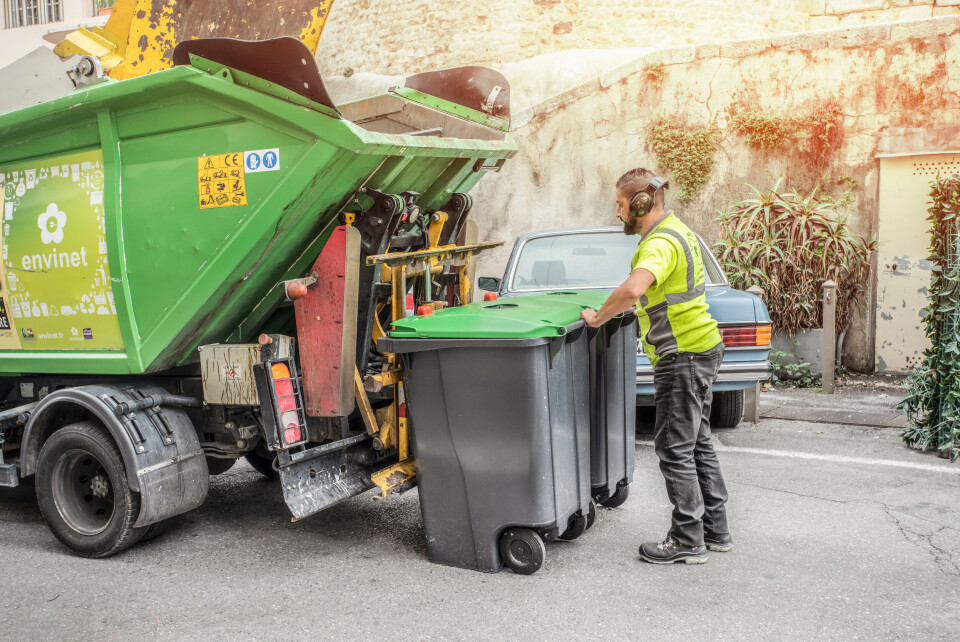-
December events in France: art, fashion and the Titanic
Explore Gustave Courbet's masterpiece at Musée d’Orsay, 1920s fashion at La Piscine, Picasso Museum's expansion, and the Titanic exhibition in Lyon
-
Vibrant Montpellier's festivals, beaches and year-round events
From Coeur de Ville en Lumières to Montpellier Danse, plus fabulous beaches, the city is a perfect getaway
-
Montpellier, a cultural hub with historic universities and diverse museums
Experience the city's diverse heritage and artistic offerings, featuring top museums like Musée Fabre
15 things your French ‘com com’ can do apart from collect your bins
Your ‘communautés de commune’ provides local services and advice to residents

There are almost 35,000 communes in France, and nearly a thousand communautés de communes (often referred to as com com) managing an array of services as diverse as public outdoor spaces, economic development, natural water resources, spaces for travelling families, refuse, sewerage and town water.
Some also manage the local environment, housing, development policy, meals on wheels, roads, the provision and maintenance of cultural and sporting equipment in nursery and primary schools, plus ‘social action’, which can be almost anything designed to improve people’s lives.
The issue of which authority is responsible for exactly which services is complex and localised, but if your com com cannot help on a specific issue, it should at least be able to tell you who can.
Here is what else you can do there:
1. Report problems
Report potholes, fallen trees, blocked ditches or non-functioning street lighting.
You can also notify them of floods and water pollution (eg. rubbish or a dead animal in a stream, or a farmer using restricted insecticides).
2. Get septic tank advice
If your septic tank needs attention, you can get a list of local specialists, and sometimes even financial help to carry out the work.
The assainissement department can also carry out inspections to determine if your fosse is up to standard – useful when selling a house.
3. Start composting
Some com com give residents free compost bins, and even run training sessions on using them successfully.
Read more: All homes in France must have access to food waste bin from next year
4. Get a career steer
A com com can point job-seekers in the direction of local large employers.
5. Receive help with paperwork
Find information about free services to help with paperwork, even if you do not speak French.
They can also provide legal advice, youth employment and training, food banks, and signpost other services.
6. Get rid of waste
You can get a refuse collection timetable, a map of local recycling points, and information on separating glass, paper and packaging.
You may also register for a special bin containing a chip to record how often your bin is emptied, and how much you should be charged for it.
They may deliver cards giving access to local déchèteries (tips), along with information on opening hours and items accepted.
Read more: How to get a déchetterie permit in France with a UK-registered car
7. Arrange an internship
Teenagers can get short internships at the com com.
This is sometimes a useful step towards becoming a fonctionnaire.
8. Use the médiathèque
You can swap seeds and cuttings at seed libraries in some médiathèques and borrow foreign language books (including in English).
There are also activities for children on Wednesdays/Saturdays and school holidays, including storytelling and illustrating fairy tales.
9. Find out about local clubs
Ask the com com for a list of evening classes, clubs and associations in your area.
The com com often organises the forum des associations in September.
Read more: How to join a sports club in France: admin, medical and fees explained
10. Get business support
If you are setting up a local business, the com com can give advice and even invest.
11. Set up an association
Get help setting up, funding and running an association, including free photocopying and advertising.
The com com can also help organise events, lend minibuses to sports teams, and lend music and PA systems, tents, tables, benches and reusable cups for events.
12. Follow the tourist trail
They also run tourist offices, with information about local events and leisure activities such as hiking, riding, swimming and fishing – plus free maps.
Local artists and craftspeople can often exhibit or sell their work here too.
13. Get help with childcare
They manage subsidised creches and afterschool garderies, as well as kids’ clubs on Wednesdays and during holidays.
You can get help finding and hiring a nanny, or becoming one yourself. They also run play centres for nannies and their charges.
14. Voice your planning queries
They can help with questions on local planning, such as what land can be built on.
15. Find out about telecoms
Find out if/when fibre internet will be available at your address, and get help if you are not connected.
Related articles
Leave mairies alone: their role is fundamental to democracy in France
We prefer no phone masts in our unspoilt French valley – and no signal
























